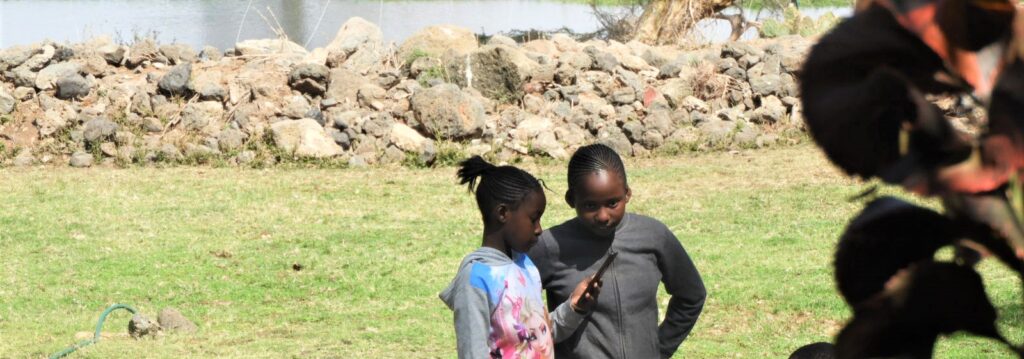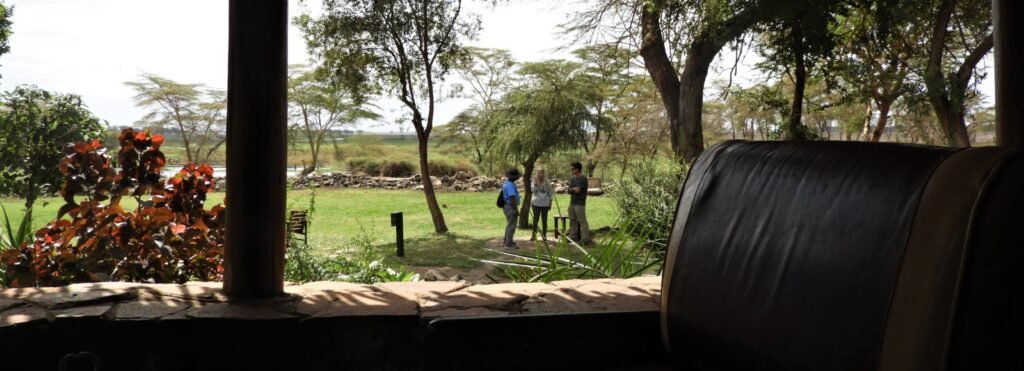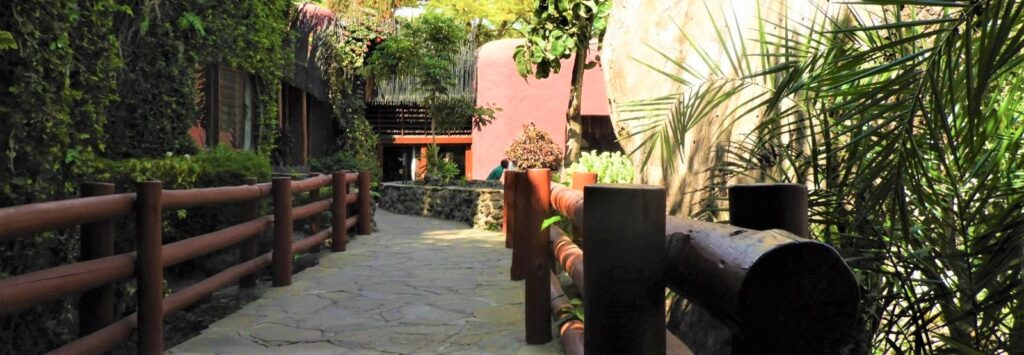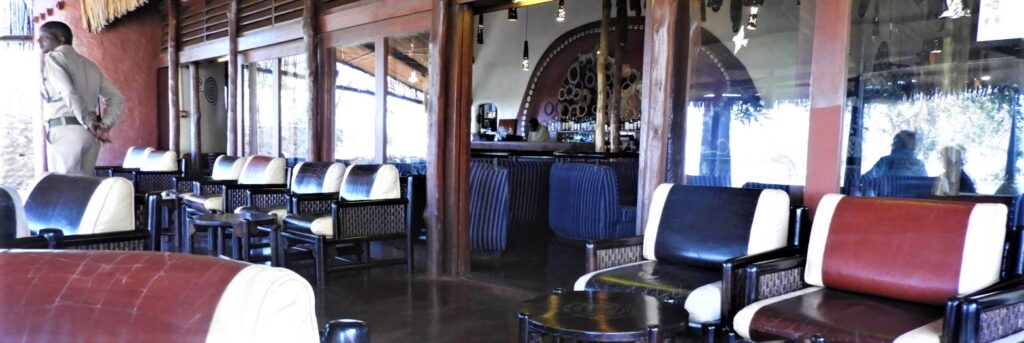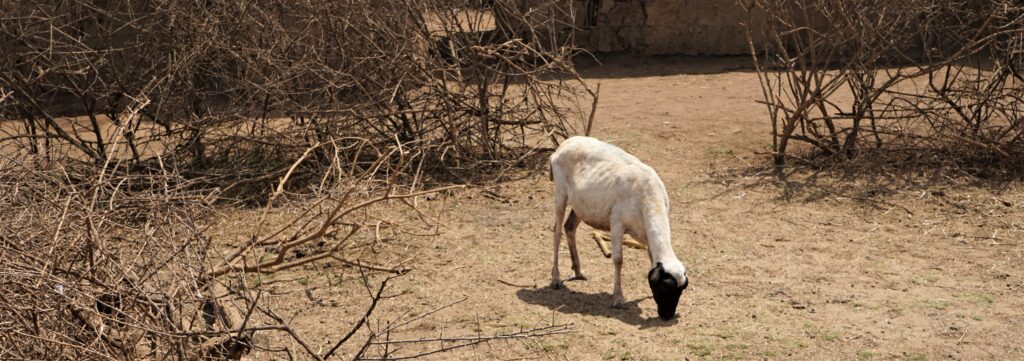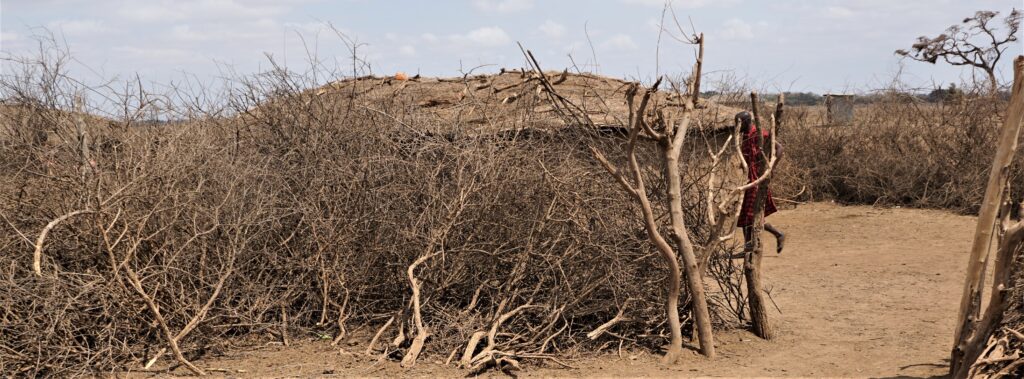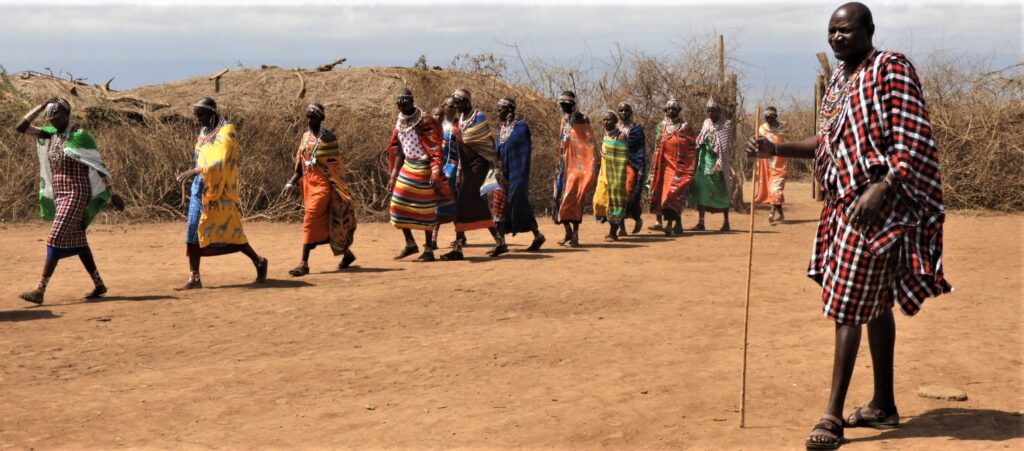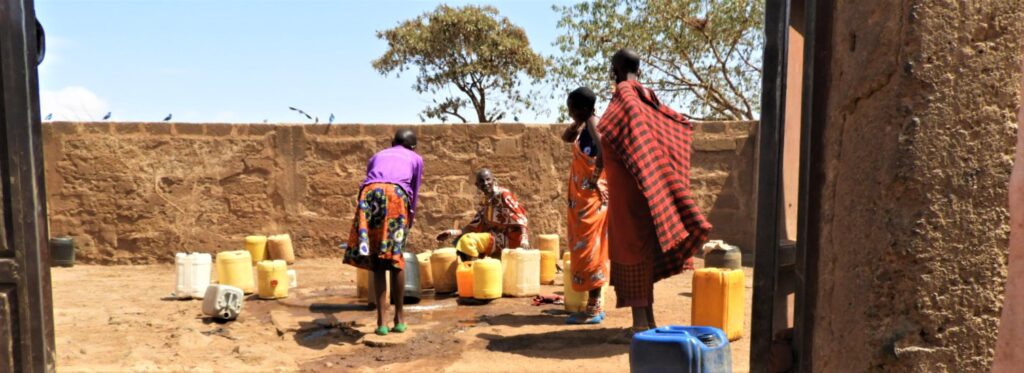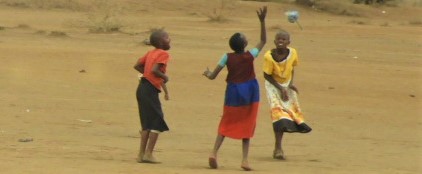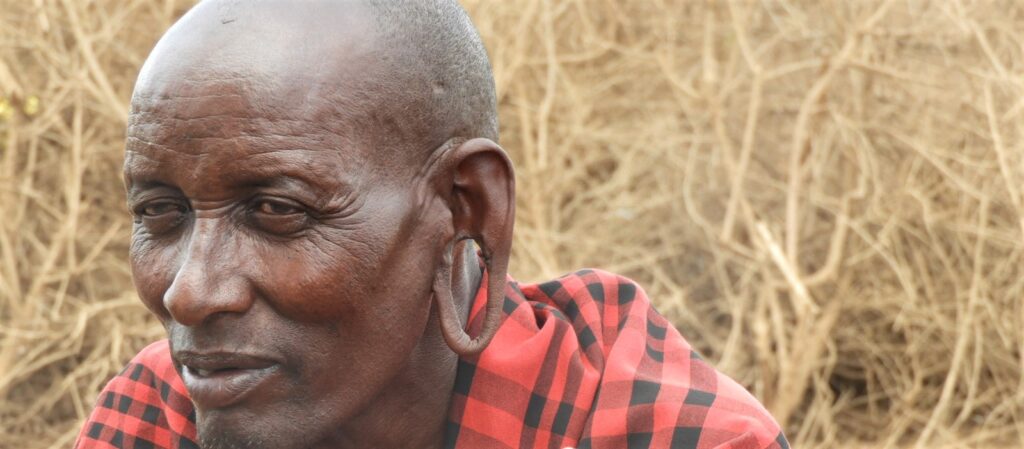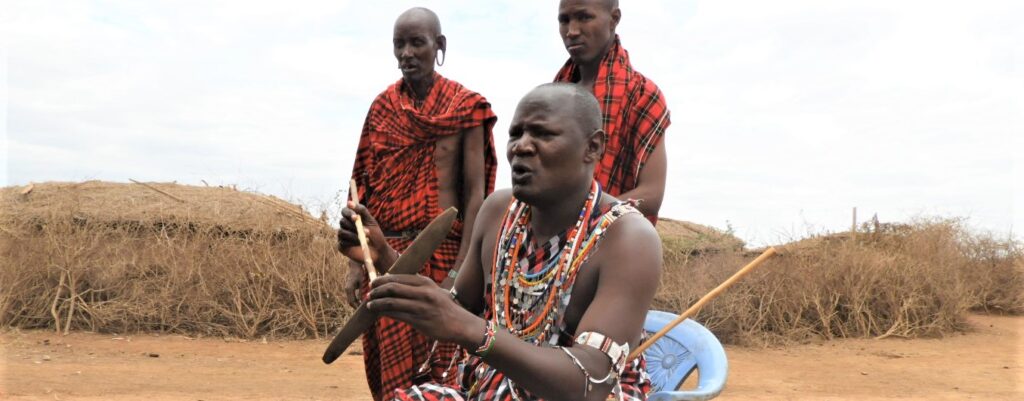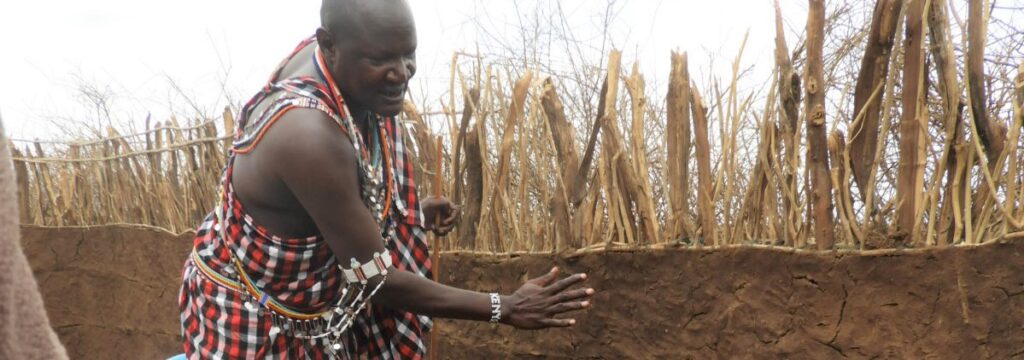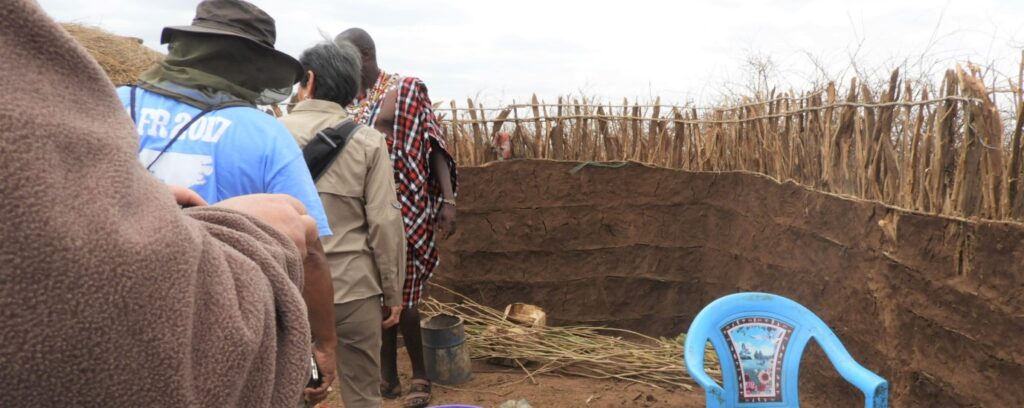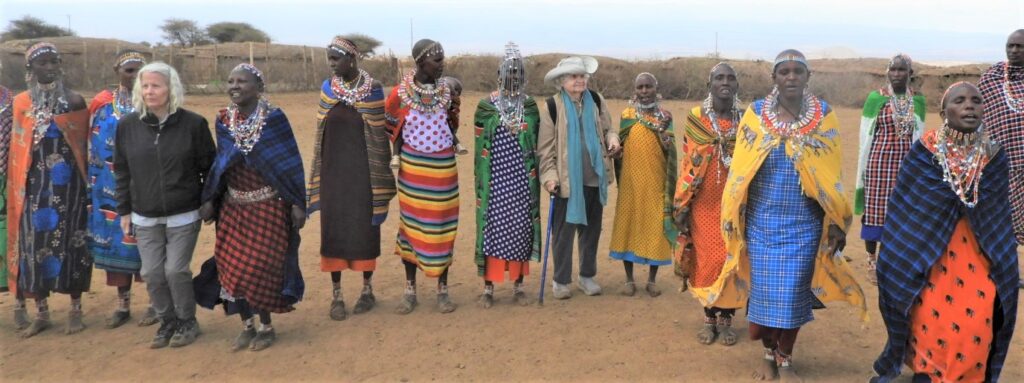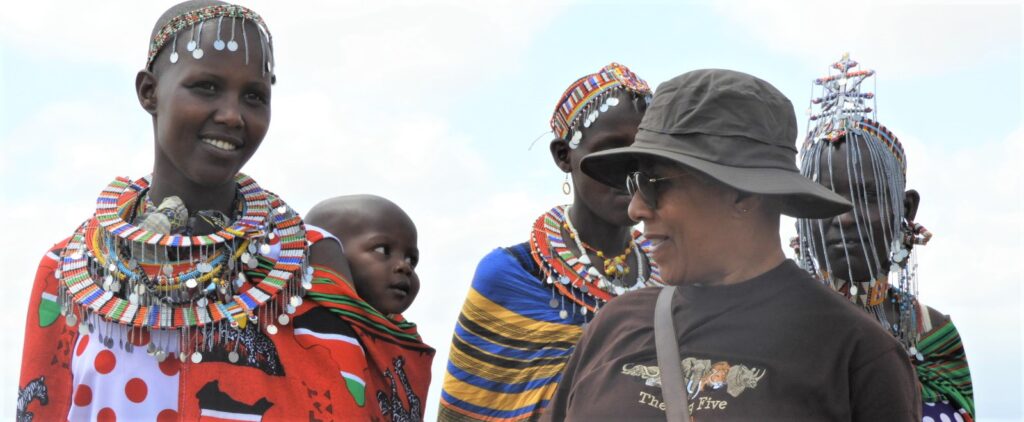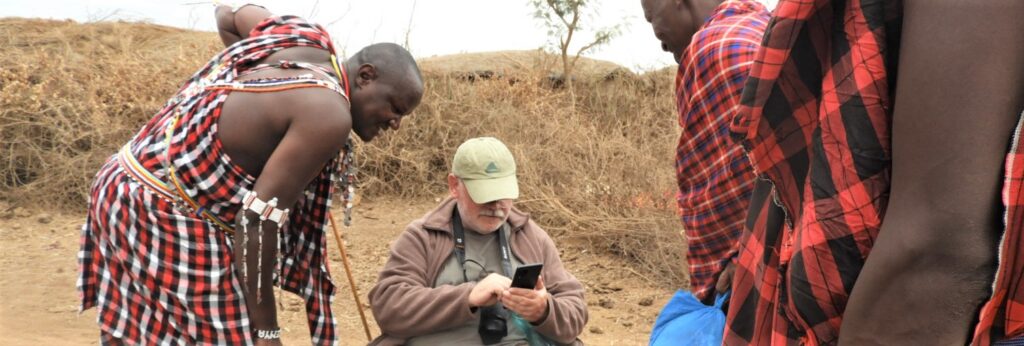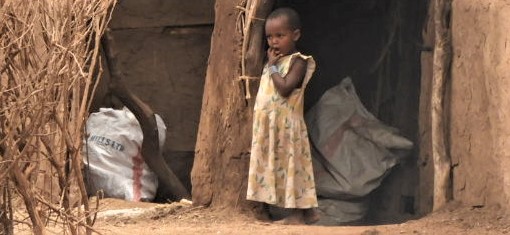Archive for September 18th, 2022
» posted on Sunday, September 18th, 2022 by Linda Lou Burton
The Dimming Of The Day
Linda Lou Burton posting from Amboseli Serena Safari Lodge, Amboseli National Park, 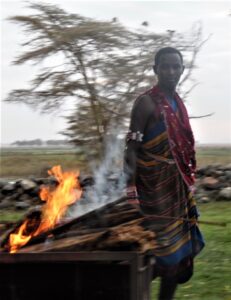 Kenya– It was our last night in Kenya, our last night with Abdi. Tomorrow we crossed the border into Tanzania; tomorrow we got new drivers; a new guide. The gang of us was seated semi-circle, our chairs in perfect position on the lawn of the Lodge to watch the sun set on mighty Kilimanjaro in a blaze of orange and red, relaxing at the end of our safari day with G&T in hand. Sundowners: a British tradition. Tonight however, the sunset was missing.
Kenya– It was our last night in Kenya, our last night with Abdi. Tomorrow we crossed the border into Tanzania; tomorrow we got new drivers; a new guide. The gang of us was seated semi-circle, our chairs in perfect position on the lawn of the Lodge to watch the sun set on mighty Kilimanjaro in a blaze of orange and red, relaxing at the end of our safari day with G&T in hand. Sundowners: a British tradition. Tonight however, the sunset was missing.
The mountain was socked in, invisible. The colors tonight, beyond the blaze of the campfire, beyond the green of the swamp and the brown dust of the fields beyond that, was gray; a gloomy look. Abdi spoke of new friendships, new insights gained; urging us to tell others, back home, about Kenya. Amos spoke, reminding us of realities we’d witnessed for ourselves in Amboseli; the images of the day flashed through my mind, the contrasts. 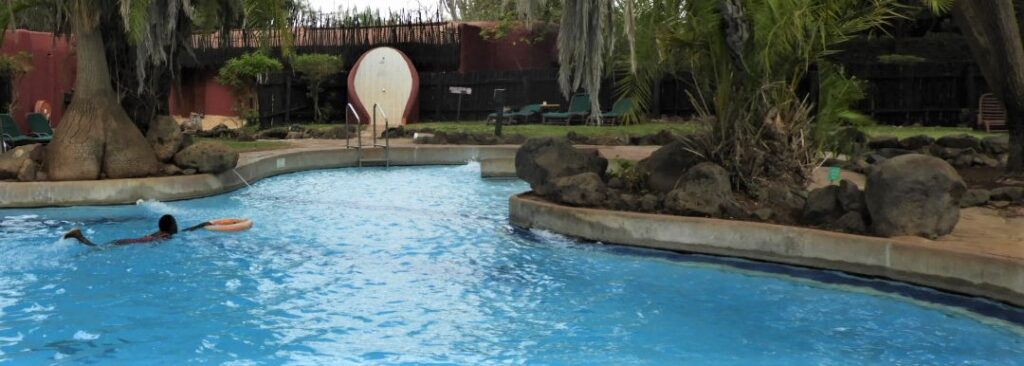
So much to think about, so much to remember. The gang of us on safari, plus our guide Abdi standing, driver Amos 3rd from right. 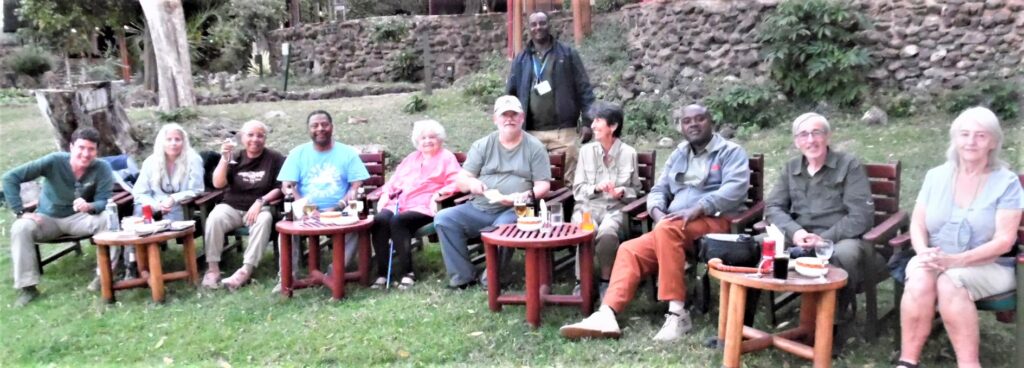
A Brief History of Amboseli National Park
Amboseli National Park is 97,117 acres in size at the core of a 1,976,843-acre ecosystem that spreads across the Kenya-Tanzania border. The park protects two of five main swamps, and includes a dried-up Pleistocene lake and semiarid vegetation. The local people are mainly Maasai.
It was 1883 when European Jeremy Thompson first penetrated the Maasai region known as Empusel (meaning ‘salty, dusty place’ in Maa); he was astonished by the fantastic array of wildlife and the contrast between the arid areas of the dry lake bed and the oasis of the swamps, a contrast that persists today. Amboseli was set aside as the Southern Reserve for the Maasai in 1906, but returned to local control as a game reserve in 1948. Gazetted a national park in 1974 to protect the core of this unique ecosystem, it was declared a UNESCO site in 1991. In 2005, Kenyan President Mwai Kibaki declared that control of the park should pass from the Kenya Wildlife Service to the Olkejuado County Council and the Maasai tribe; legal challenges are currently in court. The degazetting would divert park admission fees directly to the county council with shared benefits to the Maasai immediately surrounding the park.
» posted on Sunday, September 18th, 2022 by Linda Lou Burton
Olasiti Village
Linda Lou Burton posting from Olasiti Village, Amboseli National Park, Kenya– I met a Maasai chief today. His name is Benson Meoli. Our visit to his village was one of the perks, or 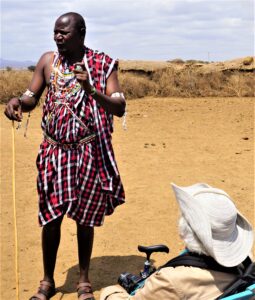 experiences, offered through Serena Amboseli Lodge, for a fee; an opportunity to learn more about Maasai culture. The Village was barely a 15-minute drive across the dusty landscape (once we exited the swampy lushness of the Lodge); Abdi had directed, ahead of time, that a chair awaited me. It was hot, and dusty there, one lone tree offering a bit of shade; after introductions Benson quickly dispatched others to bring more chairs, till everyone was comfortably seated in the meager shade. “You can ask him anything,” Abdi said, as Benson stood, a splendid man, patient and composed, awaiting his turn to speak.
experiences, offered through Serena Amboseli Lodge, for a fee; an opportunity to learn more about Maasai culture. The Village was barely a 15-minute drive across the dusty landscape (once we exited the swampy lushness of the Lodge); Abdi had directed, ahead of time, that a chair awaited me. It was hot, and dusty there, one lone tree offering a bit of shade; after introductions Benson quickly dispatched others to bring more chairs, till everyone was comfortably seated in the meager shade. “You can ask him anything,” Abdi said, as Benson stood, a splendid man, patient and composed, awaiting his turn to speak.
Before our visit ended, he had talked about the Maasai spirit; the belief in community. He gave examples of responsibility, bravery, health. There were demonstrations (how to build a fire, together, each person playing a significant part). There were others who spoke (the village doctor; the purity of their diet; no arthritis, lean physiques). We were shown how the round straw-roofed houses are built (sticks for the frame, plastered with cow dung, no windows); we were invited to go inside.
And we were invited to join the dance. Of course they danced for us; the men the famous Maasai jumping dance, as tourists expect; the women paraded in their colorful garb, singing strong. Lois joined them, I stepped forward too, with cane of course; someone quickly took my hand. Mike and Otis joined the jumping dance; Venita and Judy admired the baby, Benson’s son, we were told, a beautiful boy. Rick was given an honorary Maasai name; Ed and Maureen got photos, all around.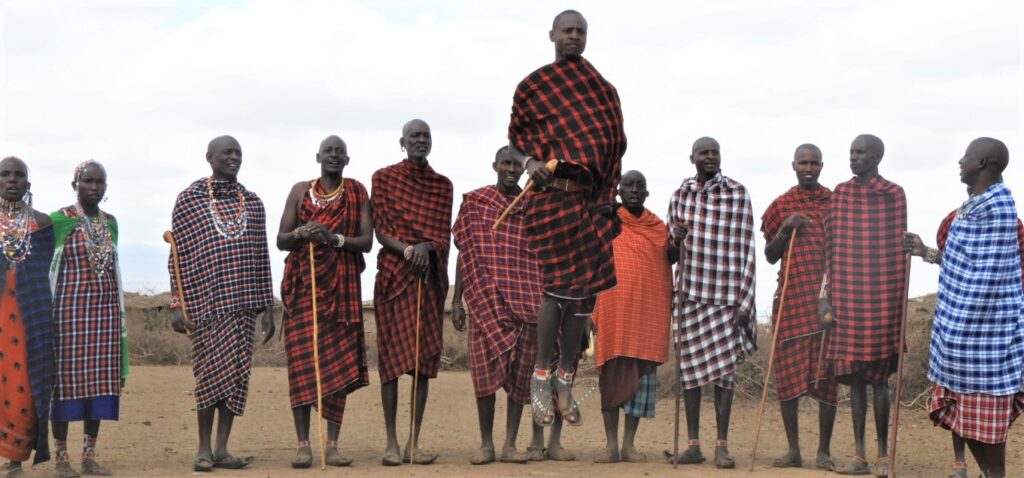
And then, the sell. The women spread their wares across the dust; blankets covered in beads, elaborate decorations for the neck, the arms; bookmarks designed as birds, giraffes; magnets for the fridge. A visit to the school; the children came today, a holiday, especially to sing for us. The pressure push was strong, but underneath, the message clear.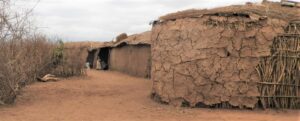
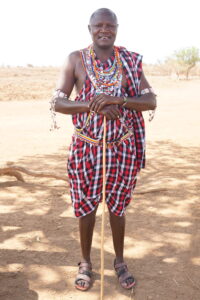 Olasiti Village is in trouble. Their cattle are dying, like the zebras we saw the day before. Their cattle, their livelihood, are dying of thirst. There is no life without water, and the water is disappearing, fast. For four years now, the rains have failed to come. The village well, their one and only water source, connects to the aquifer that connects to the mountain that looms above, and the glaciers on that mountain are disappearing, fast. Behind all the niceties, and smiles, and beaded charms, these people need help.
Olasiti Village is in trouble. Their cattle are dying, like the zebras we saw the day before. Their cattle, their livelihood, are dying of thirst. There is no life without water, and the water is disappearing, fast. For four years now, the rains have failed to come. The village well, their one and only water source, connects to the aquifer that connects to the mountain that looms above, and the glaciers on that mountain are disappearing, fast. Behind all the niceties, and smiles, and beaded charms, these people need help.
Benson Meoli, the Maasai chief I met today, asks that we do what we can.
Olasiti Village, Kenya https://www.olasitimaasai.com/



